| Article ID | Journal | Published Year | Pages | File Type |
|---|---|---|---|---|
| 2011730 | Pharmacological Reports | 2012 | 7 Pages |
Insulin significantly influences Ca2+ signals evoked by various stimulants. In type 1 recent onset diabetes mellitus the proliferative response of T cells is significantly decreased. The number of clinical trials exploring the role of anti-CD3 monoclonal antibodies (mAb) as a therapeutic agent in recent onset diabetes mellitus type 1 is increasing last years. Therefore, a better understanding of the interplay between T cell receptor (TCR) dependent Ca2+ increase, and insulin is of vital clinical significance. The aim of the study was to assess the effect of insulin on TCR evoked Ca2+ responses in T lymphocytes obtained from healthy volunteers and patients suffering from long lasting diabetes mellitus type 1. Analysis was performed with use of the flow cytometer. We demonstrated that T cells ability to mobilize Ca2+ was significantly reduced in long lasting diabetes mellitus type 1. Ca2+ decrease achieved by the long term incubation with anti-CD3 mAb in T cells from healthy volunteers was restored by insulin. Strong interrelationship between baseline Ca2+ level and plateau phase response to TCR stimulation was observed in the cytoplasm of cells pre-incubated with insulin from both healthy subjects and diabetic patients (r = 0.95, p < 0.0001 and r = 0.94, p < 0.0001, respectively). We postulate the existence of the interplay between TCR mediated activation and insulin. The TCR-insulin interplay is blunted in long lasting diabetes mellitus type 1. These observations may have an important implication for future therapeutic options in diabetes.
